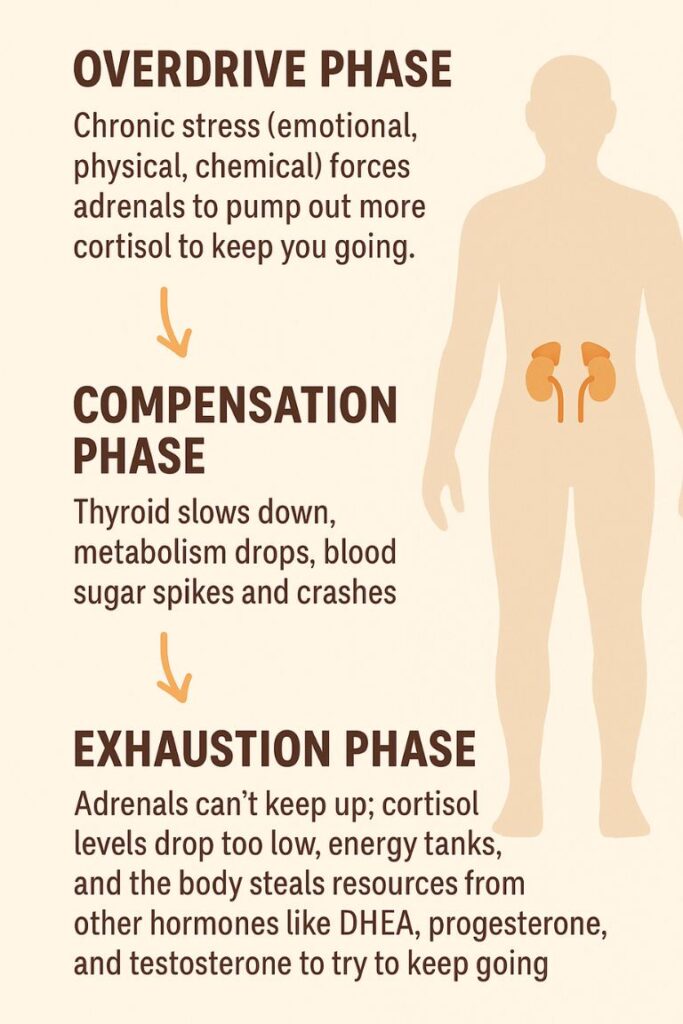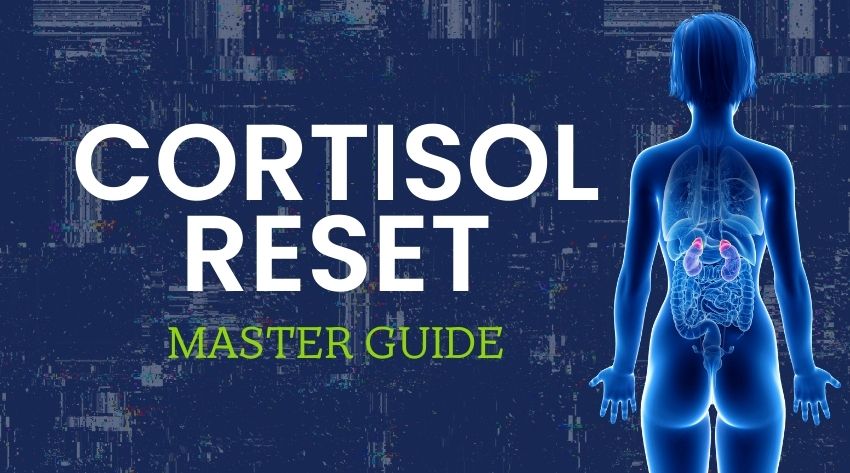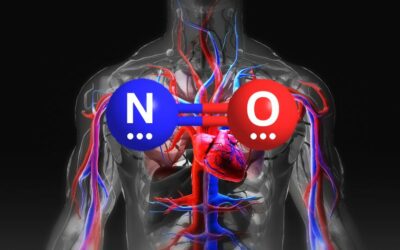Introduction to Cortisol
Cortisol is often misunderstood, but it’s truly one of your body’s most essential allies. Produced by the adrenal glands—small but mighty organs perched atop your kidneys—cortisol is the primary stress hormone that helps your body respond to both physical and emotional stress.
How the Adrenals Produce Cortisol
The adrenal cortex and adrenal medulla work in harmony to release cortisol at just the right times, ensuring your body can adapt to whatever life throws your way. The sympathetic nervous system is responsible for the ‘fight or flight’ response, which triggers the release of cortisol during stressful situations.
But cortisol does much more than just help you cope with stress. Cortisol plays a key role in regulating blood pressure, keeping your blood sugar in check, and supporting your metabolism. When your cortisol levels are balanced, you feel energized, focused, and resilient. But when stress becomes chronic or overwhelming, it can throw this delicate system off balance. Understanding how cortisol works—and why it matters—empowers you to take charge of your stress response and maintain healthy cortisol levels for optimal well-being.
Why Cortisol is Your Energy Commander
Cortisol often gets painted as “the bad guy,” but that’s only when it’s out of balance. In the right rhythm, cortisol:
- Peaks in the morning to wake you up with clear energy.
- Keeps blood sugar stable so your brain has steady fuel.
- Supports your immune system so you can fight infection without over-inflaming.
- Modulates inflammation so you heal faster.
- Helps regulate blood pressure, electrolyte balance, and even your emotional stability.
What Really Causes Low Cortisol
Low cortisol is rarely the start of the problem — it’s the final stage after months or years of stress overdrive. This condition is known in functional medicine as HPA axis dysregulation (hypothalamus-pituitary-adrenal dysfunction).
For cortisol levels to be regulated effectively, the hypothalamus, pituitary gland, and adrenal glands must all be functioning properly.
Here’s the step-by-step progression:
- Overdrive Phase – Chronic stress (emotional, physical, chemical) forces adrenals to pump out more cortisol to keep you going.
- Compensation Phase – Thyroid slows down, metabolism drops, blood sugar spikes and crashes.
- Exhaustion Phase – Adrenals can’t keep up; cortisol levels drop too low, energy tanks, and the body steals resources from other hormones like DHEA, progesterone, and testosterone to try to keep going.

Top Triggers for Adrenal Glands Burnout
- Emotional stress – ongoing work pressure, relationship issues, caregiving responsibilities.
- Acute stress – sudden, short-term stressful events (like a car accident or a heated argument) can temporarily elevate cortisol levels. If these episodes are frequent or not managed, they may contribute to adrenal burnout.
- Blood sugar roller coaster – high-carb meals, frequent snacking, caffeine on an empty stomach.
- Overtraining – daily HIIT or long cardio without recovery days.
- Inflammation overload – chronic infections, hidden mold exposure, autoimmune disease.
- Circadian disruption – late-night screen time, shift work, jet lag.
- Toxin exposure – pesticides, heavy metals, endocrine disruptors.
- Undiagnosed thyroid issues – thyroid-adrenal connection keeps both stuck in a stress loop.
Red Flag Symptoms of Low Cortisol Levels
- Morning fatigue – waking up feeling “hungover” without drinking.
- Afternoon crashes – between 2–5 PM, needing sugar, caffeine, or a nap.
- Tired but wired – exhausted but unable to fall asleep at night.
- Salt cravings – body is begging for mineral replenishment.
- Lightheadedness on standing – low aldosterone and electrolyte imbalance.
- Brain fog – can’t focus, memory slips, word recall issues.
- Anxiety & irritability – mood swings from unstable blood sugar and hormones.
- Frequent illness – lowered immune defense.
- Slow recovery – from workouts, illness, or even small injuries.
- Loss of muscle tone – despite exercise.
- Low blood pressure – especially if accompanied by dizziness.
Many of these symptoms are also characteristic of Addison’s disease, a form of primary adrenal insufficiency caused by damage to the adrenal glands.
In severe cases, extremely low cortisol can result in an adrenal crisis, a life-threatening condition that requires immediate medical attention.
Consqueuences of Cortisol Imbalance
When cortisol levels are out of sync—often due to chronic stress—the effects can ripple through every system in your body.
Elevated cortisol over time can lead to weight gain, high blood pressure, and a weakened immune system, making you more susceptible to illness and slow recovery. Mental health can also take a hit, with increased risk for anxiety, depression, and mood swings.
Cortisol imbalance doesn’t just affect your body; it disrupts your natural rhythms, leading to trouble falling asleep, persistent fatigue, and difficulty concentrating. These health problems can make it harder to manage daily stress, creating a vicious cycle. If your adrenal glands aren’t producing enough cortisol—a condition known as adrenal insufficiency—you may experience even more pronounced symptoms, such as unexplained weight loss, low blood pressure, and frequent illness.
Dietary Adjustments for Adrenal Recovery
What you eat can make a world of difference for your adrenal health and cortisol balance.
A balanced diet rich in whole foods, healthy fats, and essential nutrients helps your adrenal glands function properly and supports your body’s ability to reduce cortisol.
Focus on incorporating fatty fish, colorful fruits, and a variety of vegetables to provide the vitamins and minerals your body needs to recover from adrenal fatigue and maintain healthy cortisol levels. For more comprehensive dietary guidance related to thyroid function, consider The Thyroid Diet, and refer to the Accelerated Food Guide.
Steer clear of processed foods, excess sugar, and unhealthy fats, as these can disrupt hormone balance and contribute to adrenal gland disorders.
Staying hydrated is equally important—drink plenty of water throughout the day to support adrenal function and overall well-being. By making these dietary adjustments, you’ll not only help reduce cortisol but also promote long-term adrenal health and resilience.
Managing Caffeine Intake: Friend or Foe?

Caffeine is a double-edged sword when it comes to stress and adrenal health. While a moderate amount may give you a temporary boost, too much caffeine can ramp up stress hormones like cortisol, especially if you’re already dealing with chronic stress or adrenal fatigue.
Excessive caffeine intake can disrupt your body’s natural rhythms, making it harder for your adrenal glands to recover and potentially worsening adrenal gland issues.
To protect your adrenal health, it’s wise to limit caffeine intake and be mindful of how it affects your energy and sleep. Prioritize a consistent sleep schedule, practice good sleep hygiene, and fuel your body with a balanced diet to help buffer the effects of caffeine. If you’re experiencing symptoms of adrenal fatigue or have a history of adrenal gland disorders, consider cutting back or eliminating caffeine altogether to support healthy cortisol levels and reduce stress on your system.
Sleep and Relaxation: The Nightly Reset Ritual
A restful night’s sleep is one of the most powerful tools for restoring healthy cortisol levels and supporting your adrenal glands. When you sleep, your body enters a state of deep repair—rebuilding tissues, strengthening the immune system, and helping the adrenal gland recover from the day’s stress.
But it’s not just about the hours you spend in bed; your quality of your sleep matters just as much.
Establishing a consistent sleep schedule, ideally going to sleep before 10pm and sleeping for 7-9 hours, helps regulate your body’s natural rhythms and keeps your adrenal glands functioning properly.
Practicing good sleep hygiene—like keeping your bedroom cool and dark, avoiding caffeine and electronic devices before bedtime, and winding down with calming activities—can dramatically improve sleep quality. Relaxation techniques such as deep breathing, progressive muscle relaxation, or mindfulness meditation before bed can further reduce stress and prepare your body for restorative sleep.
Prioritizing sleep and relaxation isn’t just about feeling rested; it’s a vital step in preventing adrenal gland disorders and other health problems linked to disrupted cortisol levels. By making sleep a non-negotiable part of your nightly routine, you’ll support your immune system, help regulate your stress response, and set the stage for a healthier, more resilient you.
Mindfulness and Relaxation: Calm Your Inner Storm
When life feels overwhelming, mindfulness and relaxation techniques can be your anchor. Practices like meditation, yoga, and deep breathing are proven ways to calm the body’s stress response and support healthy cortisol levels. By engaging in these relaxation techniques, you activate the parasympathetic nervous system, which helps slow your heart rate, lower blood pressure, and reduce the production of stress hormones.
Regular mindfulness practice doesn’t just help you feel calmer in the moment—it can also improve sleep quality, ease symptoms of adrenal fatigue, and support recovery from adrenal gland disorders. The Endocrine Society recommends incorporating these techniques into your daily routine to help manage stress and maintain healthy cortisol levels. Even just a few minutes of deep breathing or guided meditation each day can make a noticeable difference in your mental and physical well-being.
Whether you’re dealing with chronic stress or simply want to boost your resilience, making time for mindfulness and relaxation is a powerful way to reduce cortisol, support your adrenal gland, and promote lasting health.
Cortisol Detox Reset: The Core 5 Cortisol Reset Supplements
Designed to work together for complete HPA axis restoration.
Acceleradine® Iodine – The Metabolic Spark Plug
Without iodine, your thyroid can’t make T4 or T3, and without healthy thyroid hormones, your adrenals have to overwork to compensate — eventually leading to burnout. That’s why it’s crucial to understand that not all iodine is created equal. Acceleradine® Iodine is different: it’s the only iodine formulated to be 100% bioavailable, free of toxic stabilizers, and designed to actually reach the cells where it’s needed most. To truly understand the differences between iodine types and why Acceleradine® stands apart, read this article on understanding the different types of iodine.
How iodine helps low cortisol:
- Kickstarts thyroid hormone production so adrenals aren’t carrying the whole load.
- Supports adrenal sensitivity to ACTH (the brain signal that tells them to make cortisol).
- Detoxes halogens that block hormone receptor sites and drain adrenal reserves.
- Boosts mitochondrial ATP production so energy comes from cell metabolism, not stress hormones.
Accelerated Ancient Salt® – The Adrenal Electrolyte Shield
Your adrenals don’t just make cortisol — they also regulate aldosterone, which controls sodium and potassium balance. Low sodium = low blood volume = fatigue, dizziness, brain fog.
How unrefined salt helps low cortisol:
- Replenishes sodium lost during stress
When cortisol and adrenaline rise, the adrenal glands trigger the kidneys to excrete more sodium. Low sodium can lead to dizziness, low energy, and brain fog. The minerals in Accelerated Ancient Salt® help restore pure, clean sodium without contaminants found in many commercial salts, helping maintain blood pressure, hydration, and stamina. - Supports the sodium-iodide transporter for optimal iodine uptake
Your body’s ability to absorb and utilize iodine depends on the sodium-iodide symporter (NIS)—a transport system that moves iodine into the thyroid, breasts, ovaries, and other tissues. Without adequate sodium, this transporter can’t work efficiently, even if you’re supplementing with iodine. Unrefined salt like Accelerated Ancient Salt® ensures the sodium foundation is in place, so iodine can get into cells where it’s needed for hormone production, detoxification, and metabolism. - Provides over 62 trace minerals for electrolyte balance
Adrenal function depends on more than sodium alone. Minerals like magnesium, potassium, calcium, boron, and others support nerve signaling, hormone production, and muscle relaxation. This broad mineral profile helps the body handle physical and emotional stress. - Supports aldosterone balance
Aldosterone is an adrenal hormone that regulates sodium and potassium levels. Low aldosterone is common in adrenal burnout, leading to dehydration and low blood pressure. The minerals in Accelerated Ancient Salt® help normalize aldosterone activity for better fluid balance. - Helps power the sodium-potassium pump for cellular energy
Every cell in your body relies on the sodium-potassium pump to maintain its electrical charge, bring in nutrients, and expel waste. This pump also helps regulate nerve impulses, muscle contractions, and heart rhythm. Without enough sodium, the pump slows down, leading to fatigue, poor nutrient absorption, and sluggish detoxification. - Improves cellular hydration
During chronic stress, water alone often fails to hydrate cells. Unrefined salt supports proper osmotic balance so water enters the cells and stays there, improving overall hydration.
Adrenosen™– The Adrenal Rebuilder
When adrenals are exhausted, they need more than nutrients — they need the actual building blocks of adrenal tissue.
How adrenal glandular helps low cortisol:
- Adrenal glandulars feed and repair adrenal cortex and medulla tissue.
- Balances cortisol output to avoid spikes and crashes.
- Restores DHEA production, supporting mood, muscle retention, and hormone balance.
Accelerated Thyroid® - The Thyroid Master
The thyroid and adrenals communicate via the HPA-T axis. If the thyroid is slow, adrenals are overtaxed; if adrenals are weak, thyroid hormone conversion suffers.
How it helps low cortisol:
- Contains thyroid glandulars to nourish and support T4 and T3 production, which is necessary for the whole endocrine system to work.
- Includes adaptogenic herbs to buffer stress.
- May help to ptimize T4-to-T3 conversion so energy production is consistent throughout the day.
- Supports reducing the demand on adrenals, allowing cortisol rhythms to normalize.
- Supports full-spectrum hormone health, not just replacing one hormone.
- Works in synergy with Acceleradine® Iodine and Adrenosen™ for total HPA restoration.
Accelerated Liver Care® - The Cortisol Detox & Metabolism Maximizer
If your liver is sluggish, hormone clearance slows, toxins build up, and your adrenals are forced to pick up the slack — keeping you in a constant stress state.
How the ingredients in Accelerated Liver Care® may help lower cortisol:
- Flush out toxins, excess estrogen, and hormone metabolites that bog down adrenal function.
- Improve bile flow for better nutrient absorption and stable blood sugar.
- Activate autophagy to clear damaged liver cells, reducing inflammatory burden on the HPA axis.
- Support mitochondrial health so the body relies less on cortisol for energy.
- Includes TUDCA for optimal bile flow and toxin clearance.
- Kukti (Picrorhiza kurroa) for liver regeneration and fat metabolism.
- Phyllanthus (Chanca Piedra) + Jin Qian Cao for breaking down gallstones and improving digestion.
- Milk Thistle and Andrographis to reduce inflammation, repair liver tissue, and boost digestion.
- Formulated without oxalates, sulfur compounds, or fillers that can slow detox or irritate sensitive systems.
Lifestyle Hacks to Supercharge Your Reset and Combat Chronic Stress
Morning Sunlight (10–15 mins within waking)
Trains your brain to release cortisol at the right time and helps manage cortisol during stressful situations.
Protein-First Breakfast (20–30g)
Keeps blood sugar stable, reducing adrenal stress.
Salt + Water Before Coffee
Replenishes minerals before adding a stimulant.
Consistent Sleep Schedule
Bed at least by 10 PM to match natural cortisol decline. Aim for adequate sleep of at least 7–8 hours each night to support cortisol regulation. Improving sleep quality by maintaining a dark, peaceful environment and a regular schedule is essential. Chronic sleep issues, such as insomnia or sleep apnea, can elevate cortisol and should be addressed for optimal health.
Low-Impact Movement
Walking, yoga, light strength — avoid long, intense cardio during recovery.
Digital Sunset
Limit blue light after dark to protect melatonin production.
Breathwork / Meditation
Calms the HPA axis and lowers unnecessary cortisol spikes. Techniques such as controlled breathing and deep breathing stimulate the parasympathetic nervous system, helping to lower your cortisol and promote relaxation.
Anti-Inflammatory Diet
Focus on grass-fed meats, wild fish, vegetables, avoid seed oils & refined sugar. Use the Accelerated Food Guide for the best food options to support your adrenals.
Engage in Positive Activities
Participate in hobbies, social connection, or acts of kindness to promote feelings of happiness and well-being, which can help lower your cortisol.
Monitoring Your Progress: Tracking the Cortisol Comeback
Taking charge of your health means keeping a close eye on your body’s response to stress and the effectiveness of your cortisol reset strategies. Monitoring your cortisol levels—through blood, saliva, or urine tests—can provide valuable insights into how your body is coping with stress and whether your adrenal glands are functioning optimally.
But numbers aren’t the only thing that matter. Pay attention to how you feel: track your energy levels, mood, sleep quality, and any symptoms like weight gain, high blood pressure, or frequent illness. These signs can offer important clues about your cortisol balance and the health of your immune system.
Why This Works When Other Adrenal Insufficiency Protocols Fail
Most adrenal “solutions” focus on a single piece — adaptogens, vitamin C, magnesium — without fixing the bigger network. The truth is:
- You must restore thyroid-adrenal communication.
- You must rebuild adrenal tissue, not just stimulate it.
- You must replenish minerals lost from chronic stress.
- You must clear toxins that block hormone function.
The Core 5 — Acceleradine®, Accelerated Ancient Salt®, Adrenosen™, Accelerated Thyroid®, and Accelerated Liver Care — checks all those boxes, turning your energy, mood, and resilience around from the ground up.
It’s important to note that symptoms often attributed to adrenal fatigue can overlap with those of recognized medical conditions such as Addison’s disease (a primary adrenal insufficiency caused by autoimmune attack on the adrenal glands), Cushing syndrome (resulting from high cortisol levels), and secondary adrenal insufficiency (due to pituitary gland dysfunction).
Properly diagnose adrenal insufficiency with blood and urine tests to assess adrenal hormone levels and guide treatment. Chronic stress and elevated cortisol, driven by the sympathetic nervous system’s ‘fight or flight’ response, are linked to increased risk of heart disease and other serious health issues. Integrative medicine, which combines conventional and complementary therapies, offers a holistic approach to supporting adrenal health and managing related conditions.
Your Cortisol Comeback: The Final Word
Achieving a healthy balance of cortisol is essential for overcoming chronic stress and supporting your adrenal health. By understanding the factors that influence cortisol levels—like sleep quality, diet, and stress management—you can take meaningful steps to lower cortisol and protect yourself from adrenal gland disorders such as Cushing syndrome and Addison’s disease.
Prioritize a balanced diet rich in healthy fats and whole foods, limit caffeine intake, and maintain a consistent sleep schedule to support your adrenal cortex and adrenal medulla. Incorporate integrative medicine and relaxation techniques to reduce stress and promote overall well-being. Regular physical activity, tailored to your body’s needs, will further help to lower cortisol and keep your adrenal gland functioning at its best.
Remember, your journey to lower cortisol and better health is ongoing. By staying mindful of your body’s signals, making informed choices, and seeking support when needed, you can break the cycle of stress and reclaim your vitality. With the right approach, you’ll not only reduce stress and improve sleep quality, but also build a foundation for lasting adrenal health and resilience.
Sara Banta
Sara Banta is a Stanford University Graduate with a Degree in Economics and Psychology, and a certified Natural Supplement Expert & Graduate of the Institute for Integrative Nutrition. Sara is the Founder of Accelerated Health Products and host of the health & wellness podcast, Accelerated Health Radio.
- Sara Banta
- Sara Banta
- Sara Banta
- Sara Banta
- Sara Banta
- Sara Banta
- Sara Banta
- Sara Banta
- Sara Banta
- Sara Banta
- Sara Banta
- Sara Banta
- Sara Banta
- Sara Banta
- Sara Banta
- Sara Banta
- Sara Banta
- Sara Banta
- Sara Banta
- Sara Banta
- Sara Banta
- Sara Banta
- Sara Banta
- Sara Banta
- Sara Banta
- Sara Banta
- Sara Banta
- Sara Banta
- Sara Banta
- Sara Banta
- Sara Banta
- Sara Banta
- Sara Banta
- Sara Banta
- Sara Banta
- Sara Banta
- Sara Banta
- Sara Banta
- Sara Banta
- Sara Banta
- Sara Banta
- Sara Banta
- Sara Banta
- Sara Banta
- Sara Banta
- Sara Banta
- Sara Banta
- Sara Banta
- Sara Banta
- Sara Banta
- Sara Banta
- Sara Banta
- Sara Banta
- Sara Banta
- Sara Banta
- Sara Banta
- Sara Banta
- Sara Banta
- Sara Banta
- Sara Banta
- Sara Banta
- Sara Banta
- Sara Banta
- Sara Banta
- Sara Banta
- Sara Banta
- Sara Banta
- Sara Banta
- Sara Banta
- Sara Banta
- Sara Banta
- Sara Banta
- Sara Banta
- Sara Banta
- Sara Banta
- Sara Banta
- Sara Banta
- Sara Banta
- Sara Banta
- Sara Banta
- Sara Banta
- Sara Banta
- Sara Banta
- Sara Banta
- Sara Banta
- Sara Banta
- Sara Banta
- Sara Banta
- Sara Banta
- Sara Banta
- Sara Banta
- Sara Banta
- Sara Banta
- Sara Banta
- Sara Banta
- Sara Banta
- Sara Banta
- Sara Banta
- Sara Banta
- Sara Banta
- Sara Banta
- Sara Banta
- Sara Banta
- Sara Banta
- Sara Banta
- Sara Banta
- Sara Banta
- Sara Banta
- Sara Banta
- Sara Banta
- Sara Banta
- Sara Banta
- Sara Banta
- Sara Banta
- Sara Banta
- Sara Banta
- Sara Banta
- Sara Banta
- Sara Banta
- Sara Banta
- Sara Banta
- Sara Banta
- Sara Banta
- Sara Banta
- Sara Banta
- Sara Banta
- Sara Banta
- Sara Banta
- Sara Banta
- Sara Banta
- Sara Banta
- Sara Banta
- Sara Banta
- Sara Banta
- Sara Banta
- Sara Banta
- Sara Banta
- Sara Banta
- Sara Banta
- Sara Banta
- Sara Banta
- Sara Banta
- Sara Banta
- Sara Banta
- Sara Banta
- Sara Banta
- Sara Banta
- Sara Banta
- Sara Banta
- Sara Banta
- Sara Banta
- Sara Banta
- Sara Banta
- Sara Banta
- Sara Banta
- Sara Banta
- Sara Banta
- Sara Banta
- Sara Banta
- Sara Banta
- Sara Banta
- Sara Banta
- Sara Banta
- Sara Banta
- Sara Banta
- Sara Banta
- Sara Banta
- Sara Banta
- Sara Banta
- Sara Banta
- Sara Banta
- Sara Banta
- Sara Banta
- Sara Banta
- Sara Banta
- Sara Banta
- Sara Banta
- Sara Banta
- Sara Banta
- Sara Banta
- Sara Banta
- Sara Banta
- Sara Banta
- Sara Banta
- Sara Banta
- Sara Banta
- Sara Banta
- Sara Banta
- Sara Banta
- Sara Banta
- Sara Banta
- Sara Banta
- Sara Banta
- Sara Banta
- Sara Banta
- Sara Banta
- Sara Banta
- Sara Banta
- Sara Banta
- Sara Banta
- Sara Banta
- Sara Banta
- Sara Banta
- Sara Banta
- Sara Banta
- Sara Banta
- Sara Banta
- Sara Banta
- Sara Banta
- Sara Banta
- Sara Banta
- Sara Banta
- Sara Banta
- Sara Banta
- Sara Banta
- Sara Banta
- Sara Banta
- Sara Banta









